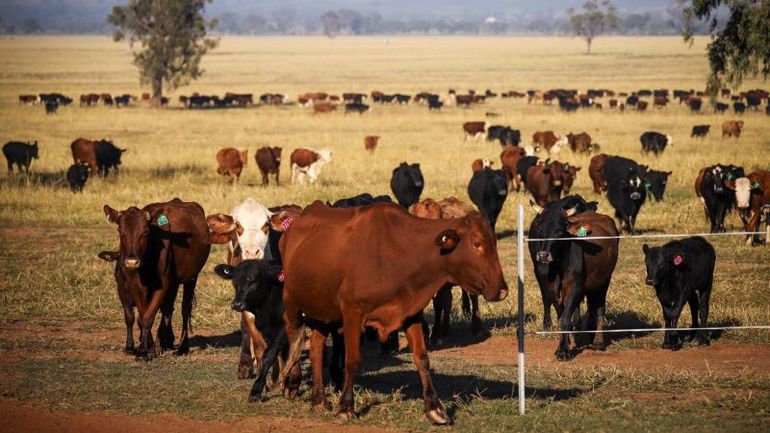
Australia welcomes China's decision to lift ban on five beef exporters

Australia expresses gratitude as China lifts bans on imports from five key Australian beef processing facilities, marking a positive development in bilateral relations between the two countries.
China has removed import bans from five major Australian beef processing facilities, as announced by the Australian government on Thursday. This development reflects the ongoing improvement in relations between the two nations.
According to the government, Beijing has lifted restrictions from a total of eight abattoirs. However, import bans still apply to two facilities.
China implemented bans on certain Australian products between 2020 and 2022. This decision was made around the same time that China restricted imports of various commodities from Australia, such as coal, timber, and wine. This action was taken after Australia requested an independent inquiry into the origins of COVID-19.
These bans specifically targeted certain abattoirs, but others were not affected. As a result, Australia was still able to export beef to China during this period.
"It was tough for those specific abattoirs, but we continued to see a steady flow of beef," shared Matt Dalgleish, an analyst at agricultural consultants Episode 3.
According to Dalgleish, the lifting of restrictions is expected to further increase Australian shipments to China. This comes as Australian beef exports to China have already reached their highest level since 2020, partly due to a decrease in the cattle herd in the United States - Australia's main competitor - resulting in reduced US exports.
Dalgleish suggested that China's recent actions may have been influenced by lower US beef supply.
According to Australian trade data, China was the second-largest market for Australian beef exports last year, importing 240,000 tons valued at approximately $1.6 billion.
Beijing has removed many restrictions on Australian goods following a change in government in Australia two years ago. However, the ban on importing Australian lobsters still stands.
Australian foreign minister Penny Wong, trade minister Don Farrell, and agriculture minister Murray Watt are working together to urge China to lift the remaining barriers to trade, especially for Australia's rock lobster industry.
Australia's exports worth 20.6 billion Australian dollars ($13.6 billion) were significantly affected by China's trade barriers at their peak.
China suspended Australian beef processors due to concerns about labeling, contamination, or instances of COVID-19 among their workers.
Editor's P/S:
The easing of tensions between China and Australia is a welcome development for both nations. The removal of import bans on Australian beef processing facilities signals a willingness to rebuild economic ties that were strained in recent years. While the lifting of restrictions is positive news for the Australian beef industry, it is important to note that China still maintains a ban on Australian lobsters. This ongoing restriction highlights the need for further dialogue and cooperation between the two countries to fully resolve trade disputes and foster a mutually beneficial relationship.
The article highlights the potential economic benefits for Australia as a result of increased beef exports to China. However, it is crucial to consider the broader implications of relying heavily on a single export market. Diversifying export destinations and developing new markets can help mitigate risks associated with dependence on one country. Additionally, addressing concerns raised by China, such as labeling and contamination, is essential for maintaining long-term trade stability.






